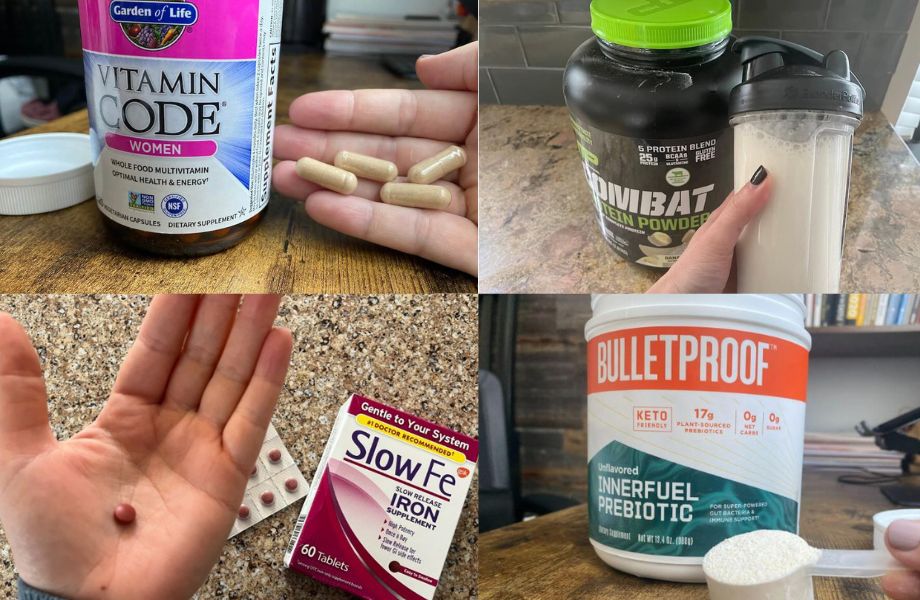We test and review fitness products based on an independent, multi-point methodology. If you use our links to purchase something, we may earn a commission. Read our disclosures.
Weight loss is hard: There’s no getting around that. When diet and exercise feel fruitless, people turn to popular weight loss supplements, including prescription medications. Unfortunately, many weight loss products are questionable at best and downright dangerous at worst. We encourage consumers to be skeptical of any product that promises quick fat loss or an increased metabolic rate.
As a certified personal trainer and certified sports nutrition coach, clients often come to me wanting to lose weight and inquiring about fat burners and appetite suppressants. My job is to gently steer them toward safer, scientifically-supported products and refer them to a registered dietitian for personalized nutrition advice.
Speaking of registered dietitians, I consulted with Destini Moody, RD, who has years of experience in dietetics, to help me create this guide to the best weight loss supplements (that are actually safe and good for you). We also leaned into our detailed supplement testing methodology to assess important factors to consider when shopping for these products, including:
- Formulation: What ingredients are present, and are the dosages of each research-backed?
- Price: How much money will this product cost you, and more importantly, is the value there?
- Third-party testing: Has an independent third-party agency certified that this product contains what it says it contains?
- Side effects: Did this product cause any issues, like digestive distress?
RELATED: Best Weight Loss Programs
Let’s dive in.
Medical disclaimer: This article is intended for educational and informational purposes only. It is not intended as a substitute for medical advice. For health advice, contact a licensed healthcare provider. GGR also recommends choosing a product that has been third-party tested for quality.
Best Weight Loss Supplements
- Best Daily Weight Loss Supplement: Multivitamin
- Best-Tasting Weight Loss Supplement: Whey Protein Powder
- Best Vegan Supplement for Weight Loss: Vegan Protein Powder
- Most Effective Weight Loss Supplement: Fiber
- Best Weight Loss Supplement for Gut Health: Probiotic
- Best Weight Loss Supplement for Appetite Control: Casein Protein Powder
- Best Nighttime Weight Loss Supplement: Magnesium
- Best Weight Loss Supplement for Plant-Based Dieters: Vitamin B12
- Best Weight Loss Supplement for Women: Iron
- Best Weight Loss Supplement to Use When Working Out: Caffeine
- Best Supplements for PCOS Weight Loss: Omega-3
What to Know About Weight Loss Supplements—Important Info
If you run a Google search for “best weight loss supplements,” the majority of web pages Google serves up will look a lot different from this one. Most guides to the best weight loss supplements are actually guides to the best weight loss pills, meaning fat burners, appetite suppressants, and various other diet pills that claim to “boost metabolism,” “burn stubborn body fat,” or “enhance thermogenesis.”
The problem is, no such supplements are FDA-approved for over-the-counter or even prescription use—if you didn’t know, the FDA doesn’t actually approve any dietary supplements. According to the Dietary Supplements Health and Education Act of 19941 (DSHEA), officials can only take action once a supplement is on store shelves, so it’s up to the manufacturer to ensure their products are safe. And proclaimed belly fat-burning diet pills can be really dangerous.
In fact, according to a 2012 systematic literature review in the Journal of Medical Toxicology2, 11 popular weight loss products are associated with adverse side effects ranging from mildly uncomfortable to severe and requiring medical attention. Some of those have since been removed from the market by the FDA.

So, the “best diet pill” doesn’t really exist. We don’t and won’t recommend them to our readers due to safety concerns.
However, there are many products that can serve as effective weight loss supplements when taken in conjunction with a healthy diet and exercise program.
RELATED: High-Protein Foods List for Weight Loss
The best diet supplements are not the popular weight loss pills that promise to help you lose weight fast or act as a thermogenic fat burner (or off-market prescription weight loss drugs). The best products to help you achieve weight loss goals are primarily nutrients that you need in your daily diet.
The supplements we recommend in this guide can provide a host of health benefits other than weight loss, too. By filling nutritional gaps in your diet and resolving any nutrient deficiencies you may have as a result of low calorie intake, you may well see your energy levels and overall wellness improve.
Best Daily Weight Loss Supplement: Multivitamin
Good for: Anyone who is trying to lose weight, to fill nutritional gaps and avoid deficiencies
Best Multivitamin for Women
O.N.E Multivitamin by Pure Encapsulations
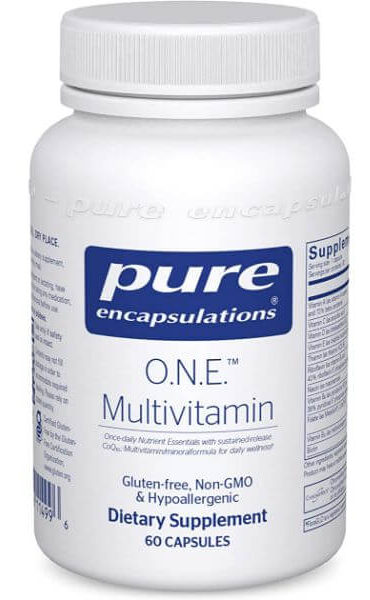
Product Highlights
- Developed with medical professionals and nutritional experts
- Ingredients are backed by clinical studies
- Free from wheat, eggs, tree nuts, peanuts, and gluten,
- No artificial colors, flavors, sweeteners, coating, or shellacs
- Supports brain function, cellular health, and vision
Pros & Cons
Pros
- Clean formula
- Works for men and women
- Reportedly noticeable increase in energy
- Premium ingredients
Cons
- Smell/taste is reportedly unpleasant
- May cause digestion issues for some
Bottom Line
Pure Encapsulation O.N.E Multivitamins for Men and Women are formulated to support healthy cognitive function, cellular health, and eye health.
Best Multivitamin for Men
Onnit Total Human
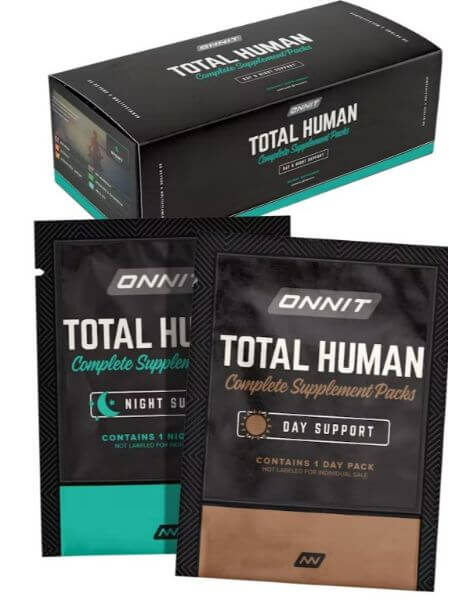
Product Highlights
- Complete supplement packs
- Day and night packs of supplements
- All-in-one product
Pros & Cons
Pros
- Subscribe and save
- Combination of Onnit’s best products
- Day pack for energy and night pack for better sleep
- High dosages of vitamins and minerals
Cons
- Customers complain of receiving only partial doses of multiple supplements
- Relatively expensive
- More than 15 pills per day
Bottom Line
Onnit Total Human is an expensive supplement pack with a lot of pills, designed for people that want everything they need in one place and want to use a variety of Onnit’s products.
Losing weight requires consuming fewer calories than you burn: That is the fundamental principle of weight loss. When you eat fewer calories, you eat less food in general, and less food equals fewer nutrients.
A multivitamin can help ensure you’re getting key vitamins and minerals while you are reducing your food intake through diet, says registered dietitian Destini Moody—and in doing so, act as a first line of defense against common symptoms that make it tough to make healthy choices.
RELATED: Onnit Total Human Review
Being deficient in certain nutrients can cause symptoms such as low energy, brain fog, physical fatigue, poor sleep, and low or swinging moods. I probably don’t need to tell you that being tired and in a bad mood makes it really, really hard to make healthy food choices (let alone get a workout in).
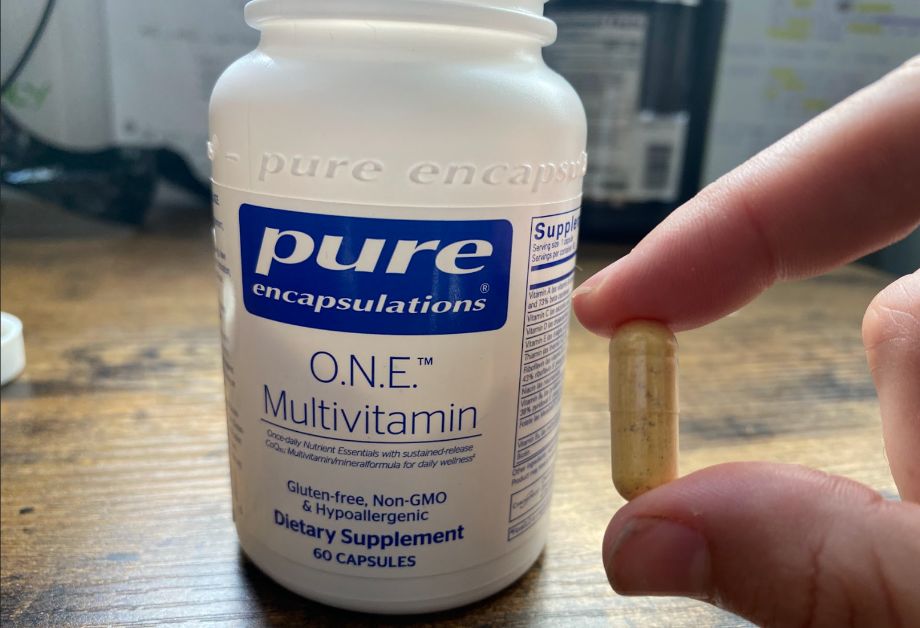
So, if you’re trying to lose weight and you’re battling any of the above symptoms, Destini and I first recommend trying a multivitamin to see if that closes any nutrient gaps in your diet. Feeling positive effects from supplements takes some time, so stay consistent with your daily multivitamin for a few weeks before jumping ship.
If you don’t notice any improvement after several weeks to a few months of taking a multivitamin, consult your healthcare provider as there may be an underlying health condition that needs resolving.
Ready to start taking a multivitamin? We have dietitian-verified guides to the best multivitamins for women and the best multivitamins for men.
O.N.E. Multivitamin Specs
| Price | $0.75 per serving/$45.20 per 60-capsule container |
| Dosage | One capsule daily |
| Form | Capsules |
| Percent Daily Value | 125% vitamin A, 200% vitamin C, 250% vitamin D3, 134% vitamin E, 250% thiamin, 231% riboflavin, 125% niacin, 235% vitamin B6, 167% folate, 20,833% vitamin B12, 1,000% biotin, 200% pantothenic acid, 5% choline, 100% iodine, 227% zinc, 127% selenium, 87% manganese, 571% chromium, 167% molybdenum |
| Use | Daily, long-term |
Best-Tasting Weight Loss Supplement: Whey Protein Powder
Good for: Weight loss warriors looking for a tasty supplement that also helps with appetite control and metabolism support
Best Whey Protein Powder
Kaged Whey Protein Isolate
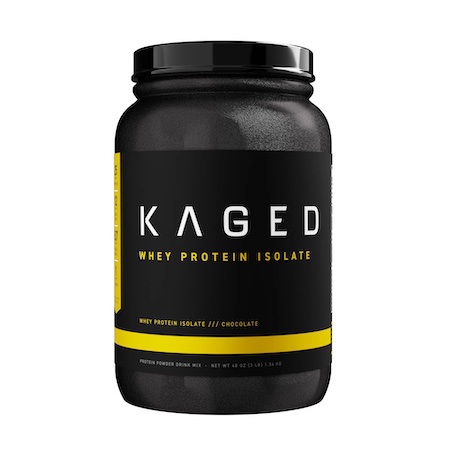
Product Highlights
- Whey protein isolate
- 25 grams of protein per serving
- Available in 3 flavors
- Third-party tested
Pros & Cons
Pros
- Affordable
- Good macro profile
- Reviewers claim it's easy on the stomach
- Tastes good
- Subscribe and save 10%
- Chocolate flavor described as the best chocolate protein powder by our product tester
Cons
- Clumpy when mixed
- Certain flavors out of stock frequently
- Only 3 flavors available
Bottom Line
Kaged Whey Protein Isolate is a fast-digesting protein available in five flavors with 25 grams of protein per serving.
You may be thinking, “Surely something with calories can’t help me lose weight.” And you’d have a good point about the calories, but what matters is your total daily calorie intake compared to your daily calorie expenditure. You won’t experience weight gain as long as you expend more than you consume, and whey protein deserves an allotment of those daily calories for its many benefits.
Whey protein, like Kaged Whey Protein Isolate, can help you lose weight in two primary ways: Protein in general is known to increase satiety, or the feeling of fullness (something we want when we are trying to lose weight), and it is critical for muscle growth.
RELATED: How Much Protein Should I Eat to Lose Weight?
What does muscle growth have to do with weight loss? Well, “Having a whey protein shake after a workout can help build and maintain muscle mass, which plays a role in keeping the metabolism from slowing down,” says registered dietitian Destini Moody.
(Lots of) science supports this.
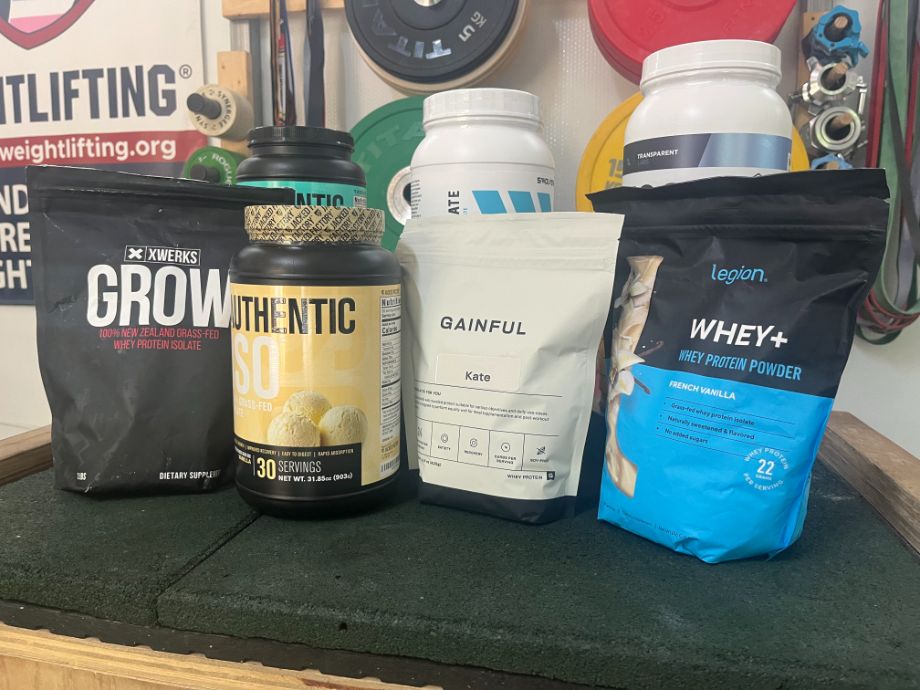
In a 2022 systematic review and meta-analysis3, researchers concluded that increasing protein intake can result in increased lower-body muscle mass and strength. A 2015 systematic review in the journal Sports Medicine4 reported that supplemental protein (that is, protein shakes) was shown to increase muscle mass in conjunction with resistance training.
One 2008 study in the journal Nutrition & Metabolism5 even found that a whey protein shake was effective at reducing stored fat cells in overweight individuals while sparing muscle mass. This is hugely important because losing muscle can negatively impact your metabolism in the long run. It’s important to note that the protein supplement was part of a protocol involving a deficit of 500 calories per day. Protein is not a magic supplement, but it has a lot of merit.
Ultimately, the important thing is getting enough protein (see how much protein you need), whether that comes entirely in the form of whole foods or you need a supplement to get you there. If you do, check out our guide to the best whey protein powder.
Kaged Whey Protein Isolate Specs
| Price | $1.36 per serving/$59.99 per 3-lb container |
| Dosage | 1 scoop (31 g) |
| Form | Powder |
| Percent Daily Value | 50% protein (25 g) |
| Use | Taken after workouts or to boost daily protein intake |
Best Vegan Supplement for Weight Loss: Vegan Protein Powder
Good for: Individuals who don’t consume dairy products and want the weight control benefits of protein powder
Best Vegan Protein Powder
Vega Sport Premium Protein
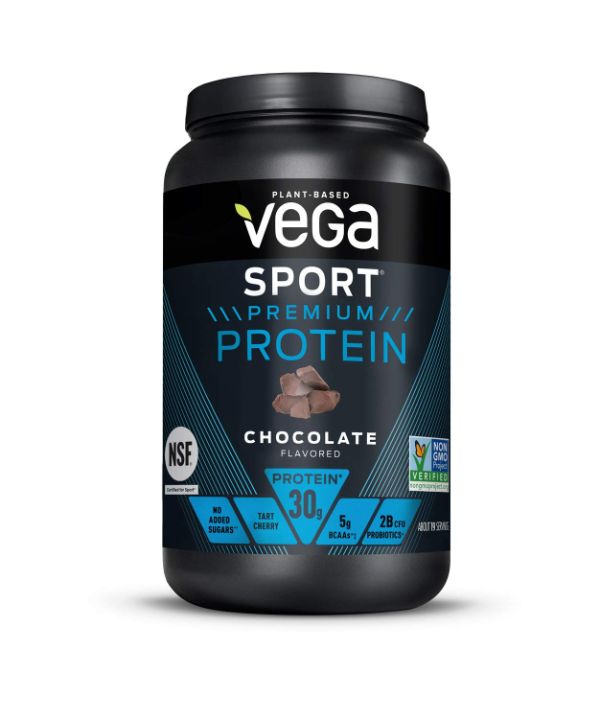
Product Highlights
- Multi-source vegan protein powder
- NSF Certified for Sport, vegan, and gluten-free
- Includes BCAAs, probiotics, and tart cherry
Pros & Cons
Pros
- 30 grams of protein per serving
- Contains all essential amino acids but two that are made by the body
- 5 flavor options
- Supports recovery with tart cherry, probiotics, and turmeric extract
Cons
- Customers share new formula doesn’t blend well
- Pricey at over $2 per serving
Bottom Line
Vega Sport Protein is plant-based, third-party tested, and gluten-free, making it suitable for a wide variety of people. One scoop provides 30 grams of vegan-friendly protein. Our testers report taste and blendability is not comparable to whey protein, but far better than other vegan-friendly options on the market.
For vegan, vegetarian, and lactose-intolerant people on a weight loss journey, vegan protein powder could be just what you need to reduce or manage your body weight. Vegan protein is still protein, and it comes with the same benefits as whey protein, so long as all nine essential amino acids are present in the blend.
Even better, many vegan protein powders are made with mostly (or entirely) natural ingredients, making it a wonderful option for individuals prioritizing their overall wellbeing. Vegan protein powder is often fortified with vitamins and minerals, too, which can help close nutrient gaps that you might experience from a lower-calorie diet.
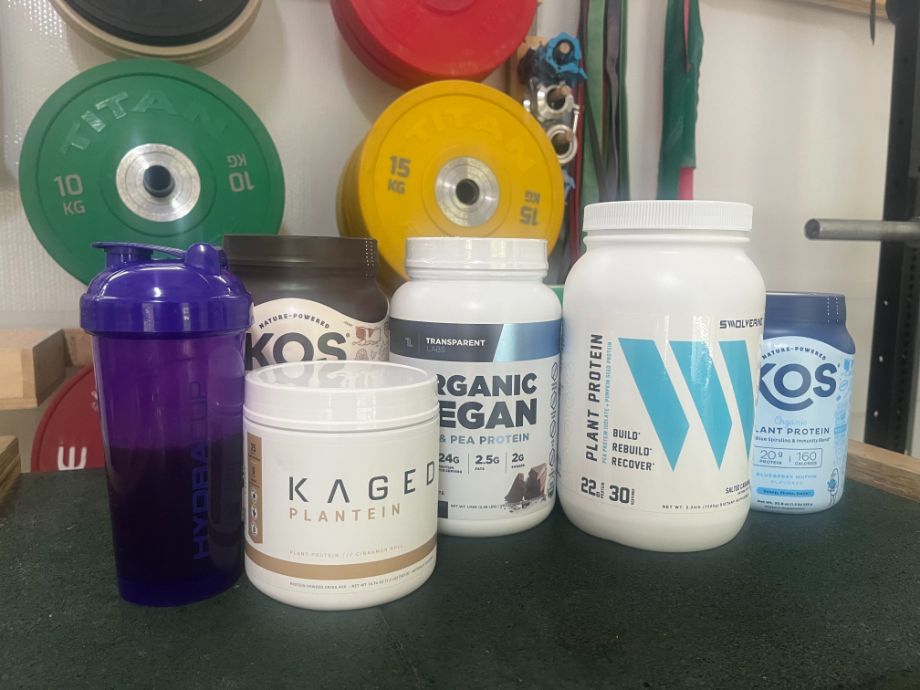
Vegan protein powder sometimes contains more carbs than whey protein powder, but again, as long as you remain in your calorie deficit, it won’t pose a problem for weight loss.
A 2021 literature review in the journal Nutrients6 reported that multiple studies show that, in people who exercise, plant-based proteins “stimulate similar adaptations as seen with animal protein sources,” meaning lean mass growth and preservation. So again, protein can help keep your metabolism humming along as you lose fat mass.
See our guide to the best vegan protein powder for our top picks.
Vega Sport Premium Protein Specs
| Price | $3.25 per serving/$64.99 per container |
| Dosage | 1 scoop (41 g) |
| Form | Powder |
| Percent Daily Value | 54% protein (30 g) |
| Use | Taken after workouts or to boost daily protein intake |
Most Effective Weight Loss Supplement: Fiber
Good for: Staving off food cravings and feelings of hunger
Best Fiber Supplement
Metamucil 4-in-1 Fiber
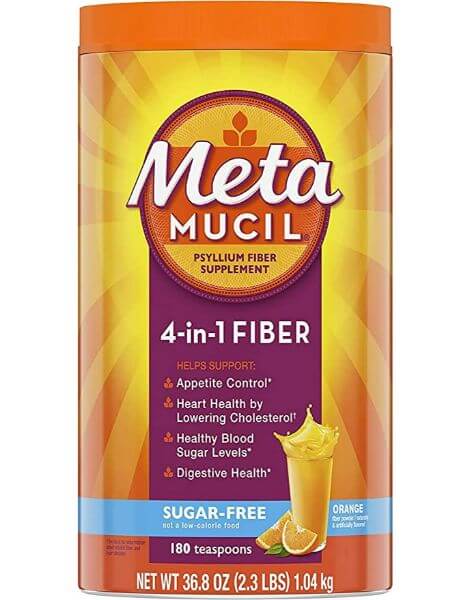
Product Highlights
- Powder psyllium husk fiber supplement
- Promotes digestive health and regularity
- Orange flavor
- Subscribe & Save option available
- Sugar-free blend
Pros & Cons
Pros
- Promotes healthy blood sugar levels
- No added sugar
- No.1 doctor recommended fiber, according to Metamucil
- Gluten-free
Cons
- Metamucil claims are based on small studies
- Contains aspartame
- Only 1 flavor
Bottom Line
Metamucil is a plant-based fiber supplement with good reviews for taste and effectiveness.
Yet another supplement that helps with appetite control, dietary fiber is a critically important nutrient in general (and one that most people don’t get enough of).
Fiber is a type of carbohydrate that your body cannot digest. It might sound weird to consume something you can’t digest, but fiber is actually really important for the health of your digestive system.
There are soluble fibers (can dissolve in water) and insoluble fibers (cannot dissolve in water). The former is what you want if you’re trying to lose weight, says registered dietitian Destini Moody, while the latter mostly serves to add bulk to stool and move things along in the gastrointestinal tract.
Soluble fiber can help you lose weight in two main ways:
- It slows digestion7 and gastric emptying, which keeps you feeling full for longer.
- It acts as a prebiotic8, feeding bacteria in the gut. There are strong relationships between specific species of healthy gut bacteria and a healthy weight9 (and other health markers, like blood sugar levels).
The recommended daily intake for fiber is 25 grams per day for women and 30 for men. If you’re not currently consuming this much fiber, a fiber supplement may work as an effective weight loss aid for you.
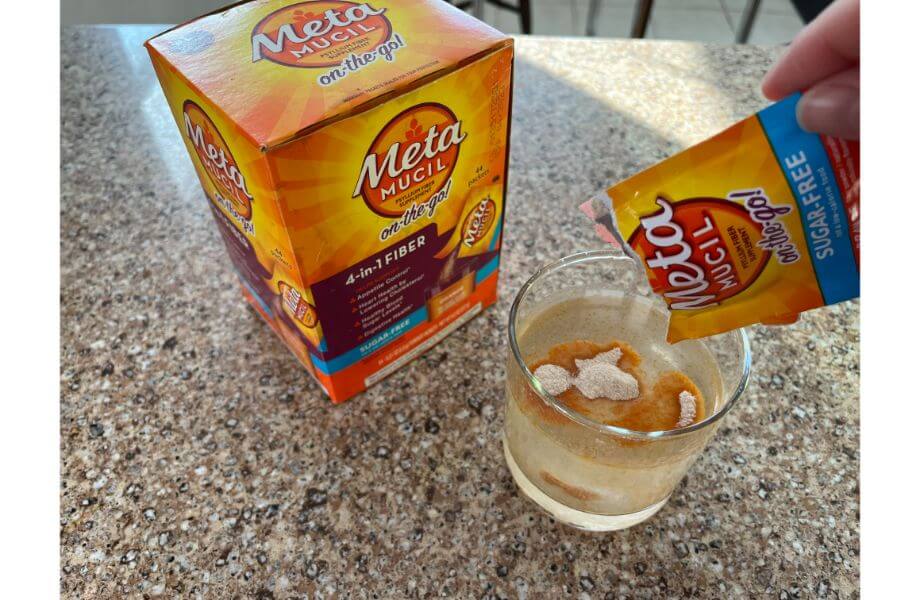
As for what type of fiber supplement to choose, research10 suggests that glucomannan, a viscous fiber extract from konjac plant root, is more effective than other types of fiber supplements (including guar gum11 and psyllium12) for weight loss. Glucomannan is in many popular weight loss pills, including Leanbean and Trimtone.
Nopal fiber13 from cactus plants is another type thought to induce weight loss; it binds to dietary fat, causing more fats to be excreted as waste. However, more research is needed to determine the efficacy and safety of this fiber supplement.
Fiber is important for more than weight loss, though, so it’s not a bad idea to supplement regardless if you are not currently meeting the recommended intake. For ideas, take a look at our guide to the best fiber supplements.
Metamucil 4-in-1 Fiber Specs
| Price | $0.18 per serving/$32.98 per container |
| Dosage | 1 or 2 rounded teaspoons |
| Form | Powder |
| Percent Daily Value | 11% dietary fiber per tsp |
| Use | Taken daily, mixed with cold liquid |
Best Weight Loss Supplement for Gut Health: Probiotic
Good for: A healthy microbiome and weight management support
Best Probiotic Supplement
Culturelle Digestive Daily Probiotic
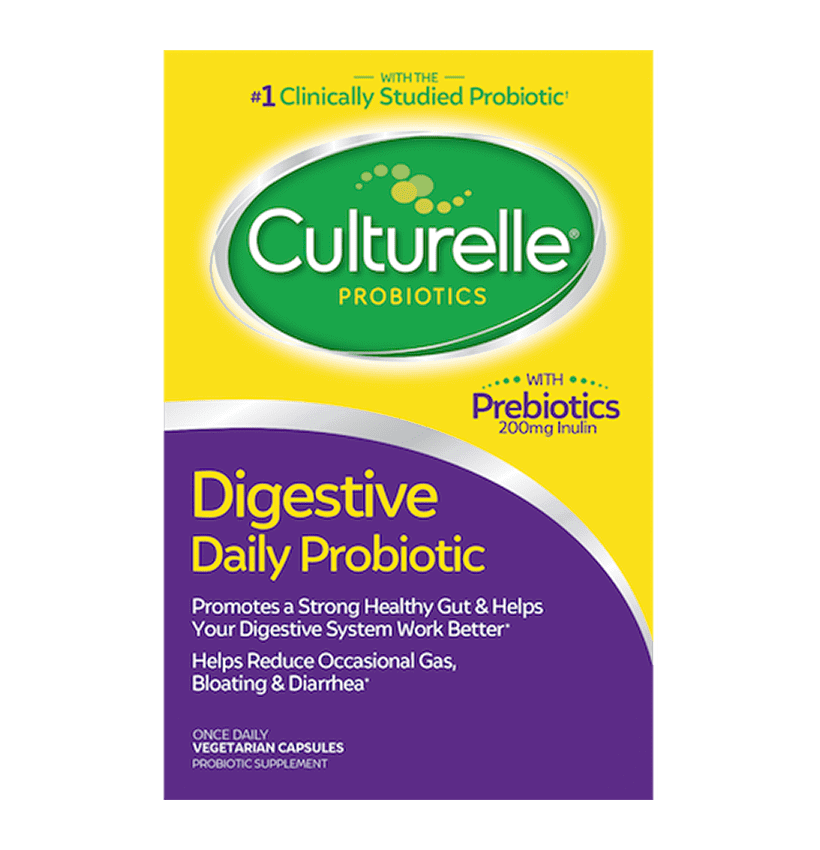
Product Highlights
- Helps reduce occasional bloating and diarrhea
- Minimizes digestive discomfort associated with travel
- 10 billion CFUs per dose
- Made with the most-studied probiotic strain
- Individually wrapped for protection of live cultures
Pros & Cons
Pros
- Vegetarian
- Free from common allergies
- Individually sealed to protect viability
- No need for refrigeration
- Available in 2 package sizes
Cons
- Pricey
- Not meant for kids under 12 years old
Bottom Line
If you are looking for a basic daily probiotic Culturelle Digestive Daily is a great option to help occasional stomach discomfort.
Looking for an effective weight loss pill? Try a probiotic.
Many studies show probiotics to be efficacious at promoting weight loss. In a 2010 trial14, researchers concluded that probiotic supplementation reduced abdominal fat by an average of 4.6% from baseline across all participants.
In a 2013 trial15, participants who took a synbiotic capsule (prebiotic and probiotic together) lost significantly more body mass than the placebo group. The participants who took the synbiotic also experienced other health benefits, including lowered cholesterol.
Registered dietitian Destini Moody says that Lactobacillus and Bifidobacterium strains have been shown to be most effective for weight management, with L. gasseri being the most effective. Sure enough, a 2021 review16 in the journal Nutrients concluded exactly that. (By the way, that review looks at 23 separate studies that show how probiotics aid weight loss).
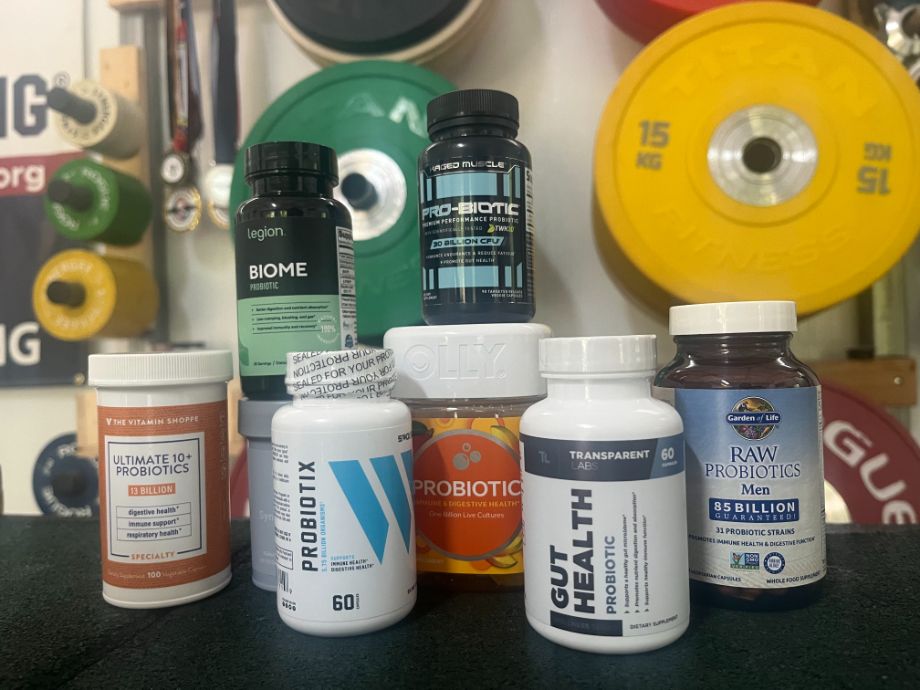
Again, I want to point out that a probiotic is much more than a weight loss aid. Taking one consistently at an effective dosage (2 to 20-plus billion CFUs) also has potential to improve your overall health.
A healthy microbiome strengthens the immune system, and poor microbiome environments have been linked to17 chronic diseases including diabetes, metabolic syndrome, and cardiovascular disease. On the flip side, a healthy gut is linked to a lower incidence of such conditions. A thriving microbiome is even thought to combat mental health disorders like anxiety and depression, according to research in Frontiers in Microbiology18.
Need a probiotic? We have a guide to the best probiotics to support your health.
Culturelle Digestive Daily Probiotic Specs
| Price | $0.58 per serving/$17.47 per container |
| Dosage | 1 capsule |
| Form | Capsule |
| Percent Daily Value | N/A |
| Use | 1 capsule taken daily |
Best Weight Loss Supplement for Appetite Control: Casein Protein Powder
Good for: Keeping hunger at bay between meals and overnight
Best Casein Protein
Transparent Labs Casein Protein
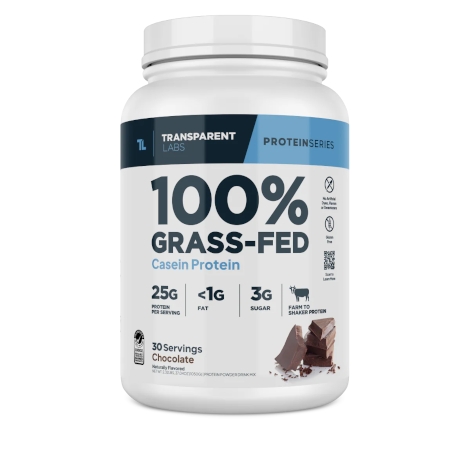
Product Highlights
- 100% grass-fed casein protein
- 3rd-party lab tested
- Chocolate flavor
Pros & Cons
Pros
- Subscribe and save 10%
- No artificial sweeteners, coloring, or preservatives
- 3rd-party lab tested
- Transparent ingredients
- Extremely positive reviews on taste
- More delicious and less clumpy than other casein protein powders, according to our product tester
Cons
- Only available in 1 flavor
- May be sold out
- Comparably expensive
- Limited reviews
Bottom Line
Transparent Labs Casein Protein provides 25 grams of protein per scoop and is extremely popular among users. Unfortunately, it may be sold out when you try to buy it, but you can sign up to be notified when it is available again.
Losing weight is hard no matter what, but it can be even more difficult for those who struggle with snacking. A handful of this and a pinch of that can quickly add up and take you out of your calorie deficit.
Enter: casein protein, nature’s appetite suppressant. Casein is the slow-digesting sibling of whey protein; it’s made of the curds from milk separation as opposed to the liquid that whey is formed from.
As such, casein protein digests more slowly than whey, says registered dietitian Destini Moody. “This is something that would be great between meals and even better to have when nighttime cravings start,” she says. “Not only can it prevent those evening munchies, but we also know casein before bed is very effective at better recovery and reduced muscle soreness in those who engage in resistance training.”
A 2020 clinical trial published in the Journal of Obesity & Metabolic Syndrome19 concluded that a high-protein diet “is an effective and safe tool for weight reduction that can prevent obesity and obesity-related diseases.”
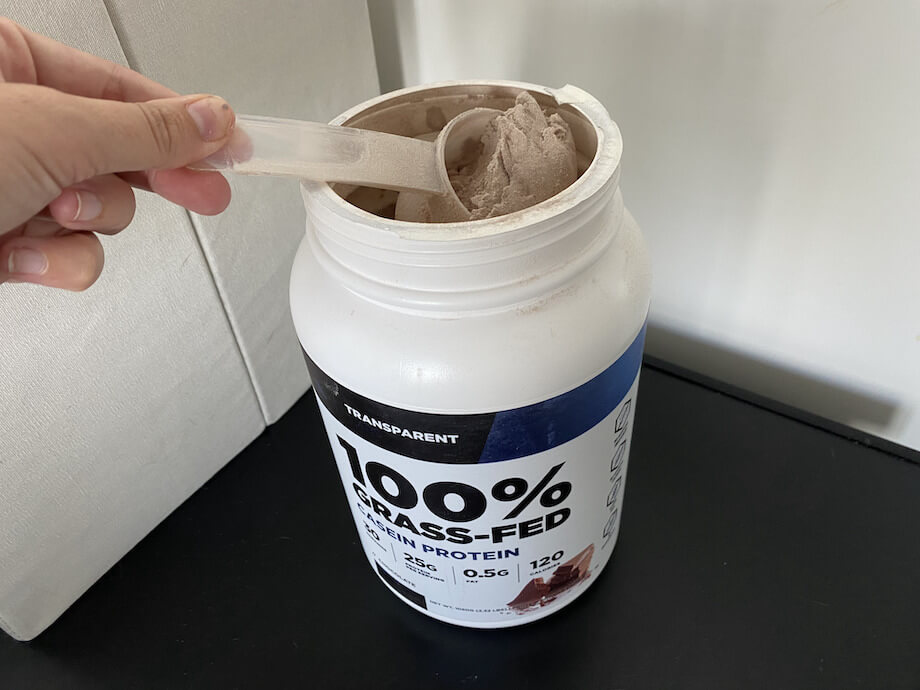
A 2015 review in the American Journal of Clinical Nutrition20 concluded that consuming 25 to 30 grams of protein at each meal may improve appetite control and body weight management, as well as cardiometabolic disease risk factors such as high blood pressure.
A 2021 systematic review in the journal Nutrients21 posited that protein could be a key factor in weight management and concluded that “diets rich in protein would seem to have a moderate beneficial effect on body weight management.”
The above is just a sampling of available research on how protein can assist with weight loss.
Casein provides the same benefits as whey in terms of lean mass maintenance, too, Destini says. That means if you take both—say whey post-workout and casein before bed—you’re getting a double dose of the good stuff. Check out our Transparent Labs Casein Protein review, or see our other top picks for the best casein protein.
Transparent Labs Casein Protein Specs
| Price | $2 per serving/$59.99 per container |
| Dosage | 1 scoop (35 g) |
| Form | Powder |
| Percent Daily Value | 50% protein (25 g) |
| Use | Mixed with water/liquid and taken daily |
Best Nighttime Weight Loss Supplement: Magnesium
Good for: People who struggle with food cravings and/or hunger due to poor sleep
Best Magnesium Supplement
Transparent Labs Magnesium Bisglycinate
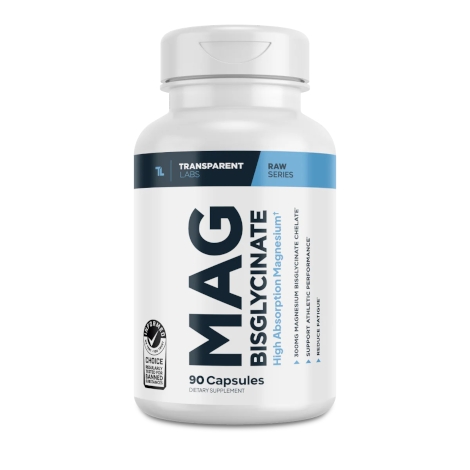
Product Highlights
- 3 tablets provides 300 g of magnesium bisglycinate
- Transparent list of ingredients
- Reportedly high bioavailability
- Benefits include improved sleep, recovery, and energy
- Vegan-friendly
Pros & Cons
Pros
- Bioavailable form of magnesium
- Transparent Labs claims it is not a laxative
- Relatively affordable
- Most users experienced the advertised benefits (sleep, recovery, energy)
Cons
- Some users didn’t like the inclusion of silicone dioxide
Bottom Line
Transparent Labs' Magnesium Bisglycinate tablets provide 300 grams of reportedly highly bioavailable, non-laxative magnesium supplement intended to improve sleep, recovery, and energy levels. As a vegan-friendly product, this affordable supplement receives raves reviews. While the vast majority of users report very positive benefits when taking this magnesium, there are a few outliers who did not appreciate the inclusion of silicone dioxide.
Magnesium22 is a mineral involved in more than 600 enzyme reactions23 in the body—that should tell you how crucial it is for your body’s engines to keep running smoothly. In particular, magnesium is very important for sleep health.
A 2023 systematic review of studies24 concluded that there’s an inverse relationship between magnesium status (deficiency present or not) and indicators of sleep quality, including daytime sleepiness, sleep duration, and falling asleep during the day.
Meaning, better magnesium status was associated with fewer indicators of poor sleep. The review reported that the current body of trial evidence is conflicting, but that there is an “association between dietary magnesium and sleep patterns.”
Another review, published April 2021 in the journal Complementary Medicine & Therapies25, specifically looked at magnesium as a sleep aid intervention in older adults with insomnia. According to the published results, total sleep time improved by about 16 minutes in the magnesium supplementation group.
What these reviews tell us is that there’s a relationship between magnesium and good sleep, and being deficient may harm sleep quality and duration. Why does this matter? Because not getting enough good sleep can dramatically impact your food choices, says registered dietitian Destini Moody.
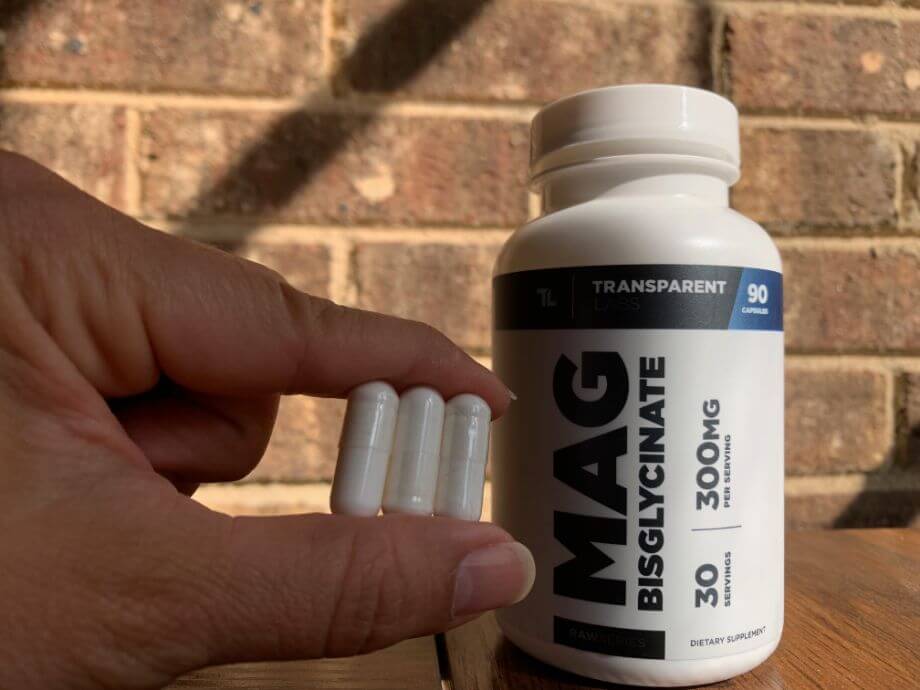
“It’s been well established through science that sleep deprivation is associated with poorer food choices,” she says, as well as “increased levels of our hunger hormone ghrelin and increased levels of cortisol, which is associated with more fat storage.”
A 2022 literature review26 in Cureus describes a “bidirectional relationship” between sleep and body weight. “Short sleepers often make poor nutritional choices and have higher caloric intakes compared to people who sleep greater than seven hours a night,” the authors wrote. People who sleep less than seven hours per night “consume a less diverse selection of foods with lower protein and fiber intake than those sleeping longer.”
Additionally, the review reports data from intervention studies that suggests sleep deprivation can lead to more snacking behavior, especially if sleep restriction is recurrent (multiple nights in a row).
So we know that poor sleep can mean poor food choices; magnesium may help improve sleep; and magnesium is important for many other body functions. Magnesium supplements are generally recognized as safe, so it’s worth a shot (first talk to your doctor if you have any health conditions). See the best magnesium supplements.
You may also consider a ZMA supplement, which includes magnesium with the addition of zinc for a potentially more potent effect on sleep.
Transparent Labs Magnesium Bisglycinate Specs
| Price | $0.57 per serving/$16.99 per container |
| Dosage | 3 capsules |
| Form | Capsule |
| Percent Daily Value | 71% magnesium (300 mg) |
| Use | Taken daily, preferably with a meal or shortly before bed |
Best Weight Loss Supplement for Plant-Based Dieters: Vitamin B12
Good for: Individuals who do not eat animal-derived foods
Best B12 Supplement
Cymbiotika Liposomal B6 + B12 Liquid
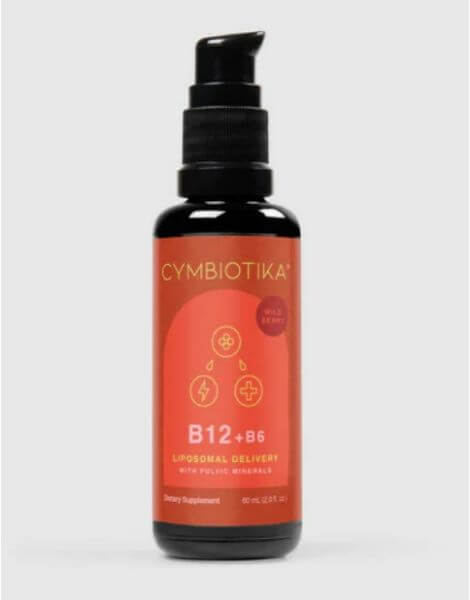
Product Highlights
- Organic blend of B12 and B6
- Claims to contain the most advanced form of B12 for maximum absorption
- Formulated to boost energy, improve mood, and support heart health
- Subscribe and save option
- Recommended to take 12 pumps daily
Pros & Cons
Pros
- Receives tremendously positive reviews
- Organic
- Bioactive
- Contains B12 and B6
- Tastes good
Cons
- Expensive
- 12 pumps a dose
Bottom Line
Cymbiotika’s Liposomal B12 and B6 dietary supplement is an organic blend of B12 in the form of methylcobalamin and adenosylcobalamin and B6 in the form of pyridoxine HCI providing 1,250 micrograms of B12 and 1.3 milligrams of B6 in addition to 1.2 milligrams of methylfolate and 100 micrograms of fulvic acid
Vitamin B12 is a nutrient required for making blood cells and it can only be obtained from animal foods, says registered dietitian Destini Moody. Many Americans are deficient in this vitamin, which is also known as cobalamin, she says.
According to the Cleveland Clinic27, deficiency in vitamin B12 can bring about symptoms such as intense fatigue, feeling very weak, feelings of depression and irritability, and gastrointestinal problems like nausea and diarrhea. B12 deficiency may also bring about low appetite and weight loss, but not in a healthy way.
Because deficiency can impact your mood and energy levels, it can affect your weight loss efforts, Destini says.
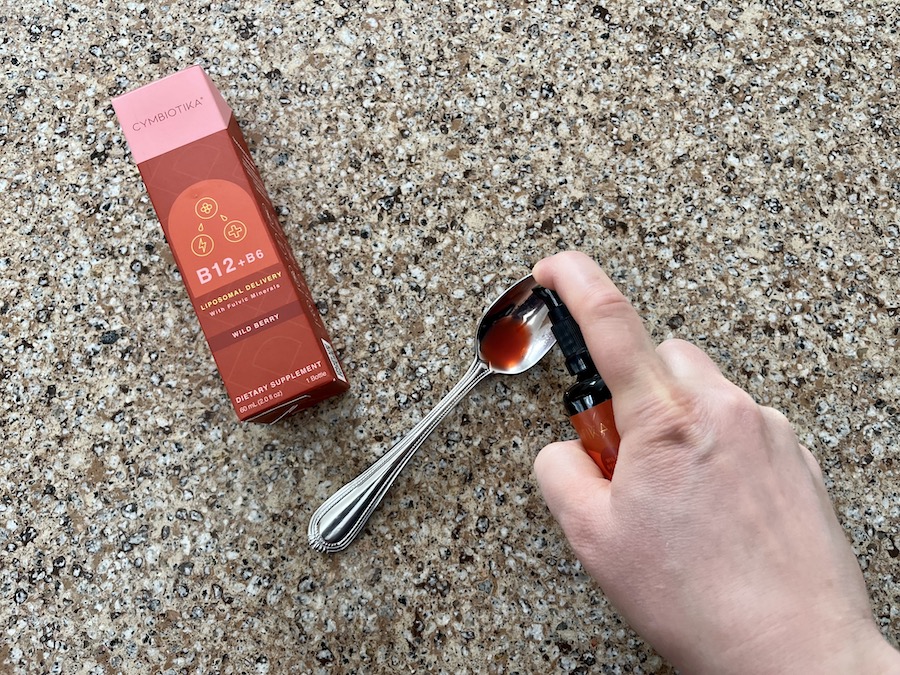
The U.S. Office of Dietary Supplements28 classifies vegetarians as a group of people who are susceptible to vitamin B12 deficiency, along with older adults, infants of vegan women, people with pernicious anemia, and those who have gastrointestinal health conditions or have had gastrointestinal surgery.
If you suspect you are deficient in B12, ask your doctor for a blood test to check your levels. If it’s warranted to take a supplement, we have a guide to the best B12 supplements. Additionally, many plant foods, such as cereals and breads, are fortified with vitamin B12 today, so one option is to buy such foods at the store.
Registered dietitian Ashley Kitchens, MPH, reminds us that, as with all vitamins and minerals, toxicity is a possibility, although it’s “almost unheard of29” with vitamin B12. In fact, no tolerable upper limit has been set for B12 because of the low level of toxicity. Still, Kitchens says to be aware of your intake, especially if you take prescription medications with potential B12 interactions30.
Cymbiotika Liposomal B6+B12 Liquid Specs
| Price | $1.60 per serving/$47.99 per container |
| Dosage | 2 ml (12 pumps) |
| Form | Liquid |
| Percent Daily Value | 63% vitamin B6, 41,667% vitamin B12 |
| Use | Taken daily |
Best Weight Loss Supplement for Women: Iron
Good for: People, especially biological females of menstruating age, who are deficient in iron and/or exercise a lot
Best Iron Supplement
Thorne Iron Bisglycinate
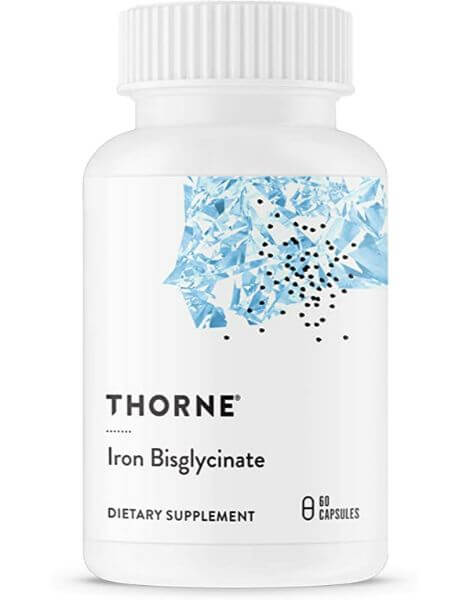
Product Highlights
- Gluten free
- Dairy free
- NSF Certified for Sport
- Chelated form for optimal absorption
Pros & Cons
Pros
- Can help increase energy
- Reduced GI effects such as nausea and constipation
- Ideal for vegans and women who are pregnant
- Many customers noted there was no aftertaste
Cons
- Higher dose than many people need
- Might need to take it with food
Bottom Line
Thorne Iron Bisglycinate claims to give your body iron in an optimal form to reap the benefits while making it easy to absorb. It is also formulated to lessen the belly problems that are often associated with taking an iron supplement.
Iron is perhaps one of the most important nutrients for active women who are looking to lose weight, says registered dietitian Destini Moody, especially if they adhere to a plant-based diet. (Plant-based diets are typically low in iron, especially when compared to omnivorous diets.)
Iron deficiency31 can cause many unfavorable symptoms, including weakness, extreme fatigue, headaches, and shortness of breath. Such symptoms naturally impact your day-to-day choices; it’s hard to make healthy choices when you don’t feel good.
Additionally, iron is extremely important for exercise performance, according to research in the American Journal of Clinical Nutrition32. This mineral carries and delivers oxygen to cells all over the body, and if your exercising muscles can’t get enough oxygen, your exercise performance will suffer, which may impact your weight loss results.
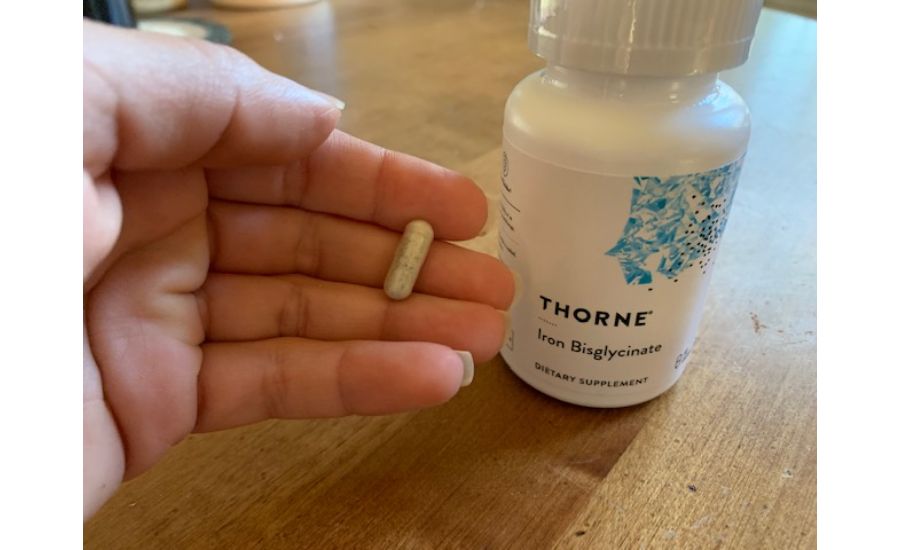
One important note: Iron supplementation is only recommended for those who are deficient. If you suspect you have iron deficiency, talk to your healthcare provider.
As registered dietitian Sydney Lappe wrote in our guide to the best iron supplements, “Taking an iron supplement is good (and necessary) for those who need to restore their iron levels, which is especially important for kids, menstruating and pregnant women, and others who might be experiencing blood loss for whatever reason.
“However, too much iron can be dangerous and even fatal, so it’s critical to verify if you actually need to take an iron supplement before starting one,” Sydney emphasizes.
Thorne Iron Bisglycinate Specs
| Price | $0.23 per serving/$14 per container |
| Dosage | 1 Capsule |
| Form | Capsule |
| Percent Daily Value | 139% (25 mg) |
| Use | 1 capsule taken daily |
Best Weight Loss Supplement to Use When Working Out: Caffeine
Good for: An energy boost and burning more calories at the gym
Best Pre-Workout
Transparent Labs BULK Pre-Workout
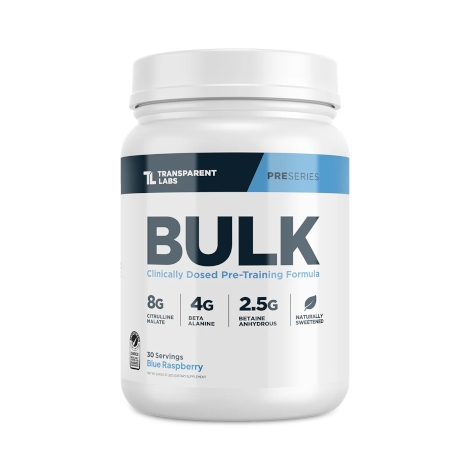
Product Highlights
- Formulated to help support muscle gain
- 20 grams of research-based active ingredients per serving
- 8 flavor variations are available
Pros & Cons
Pros
- Transparent ingredient list
- No artificial sweetener or color
- Moderate dose of caffeine
- 8 flavor options
- 60-day money-back assurance
Cons
- No creatine
- Some users report it tastes bad
Bottom Line
Transparent Labs’ BULK supplement is attractive to those whose primary focus is split between potential muscle gain and a pre-workout pump. While the taste is questionable, the product works well for most users.
Coffee is often considered a natural metabolism booster. While the jury is still out on that, we do think caffeine can play a role in a healthy weight loss plan.
Specifically, we recommend downing a bit of caffeine before a workout. Caffeine, a well-known performance enhancer, is found in most pre-workout supplements for a reason. It can significantly boost energy levels depending on the amount and your tolerance to the substance.
As such, you may be able to put forth more intense efforts in the gym and work out for longer before tapping out. This logically equates to greater calorie burn, which can increase your calorie deficit for the day.
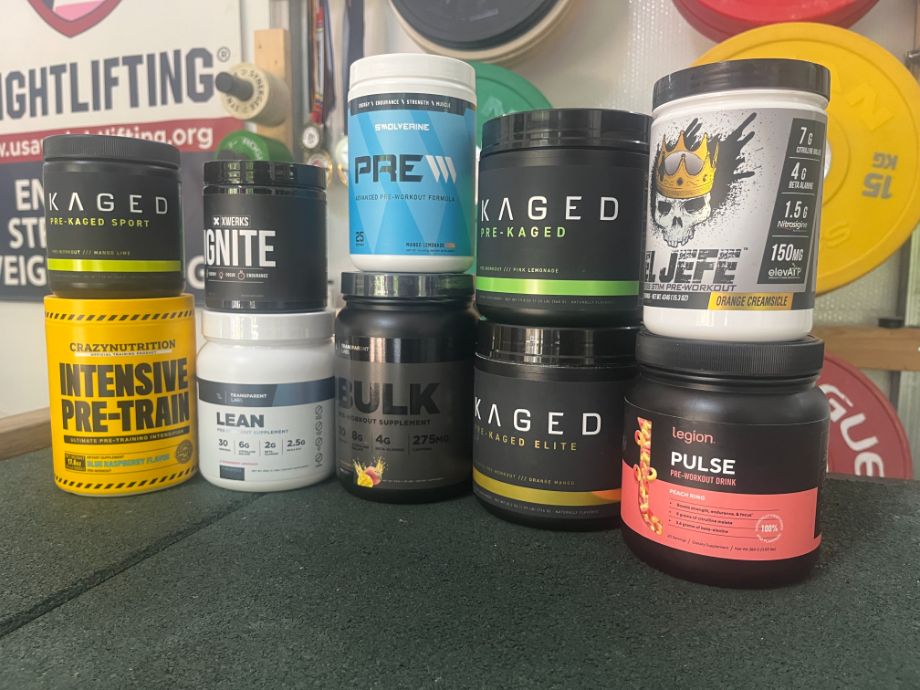
A good pre-workout supplement is our recommendation, since pre-workouts also contain other ingredients that can enhance workout performance and intensity. However, if that’s not your thing, you can also find capsules with caffeine from various sources, including green tea extract and/or green coffee bean extract, as well as caffeine anhydrous.
RELATED: Transparent Labs BULK Review
For those who are sensitive to caffeine, it’s best to start with small doses. For reference, a brewed cup of coffee has about 40 to 150 milligrams33 of caffeine depending on the brew strength.
Caffeine in very high doses can be dangerous. Complications include nausea, nervousness and anxiety, jittery feelings, and gastrointestinal distress. In severe cases, too much caffeine can cause abnormally high heart rate and seizures. The FDA34 recommends limiting intake to 400 milligrams per day.
New to pre-workout? Try one of the best pre-workouts for beginners.
Transparent Labs BULK Pre-Workout Specs
| Price | $1.67 per serving/$49.99 per container |
| Dosage | 1 scoop (21.2 g) |
| Form | Powder |
| Percent Daily Value | N/A |
| Use | Mixed with liquid 20-30 minutes prior to exercise |
Best Supplement for PCOS Weight Loss: Omega-3
Good for: People with polycystic ovary syndrome wanting to help their metabolism run more efficiently
Best Fish Oil
Legion Triton Fish Oil
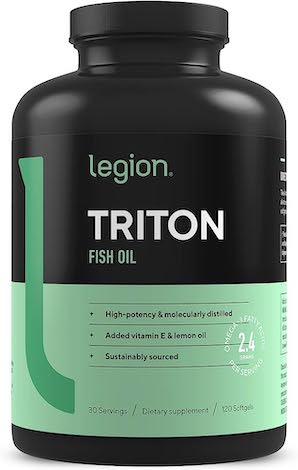
Product Highlights
- 100% reesterified triglyceride fish oil sourced from Peruvian anchovies and sardines
- Provides 4,000 mg of fish oil per serving
- Provides 1,440 mg of EPA and 960 mg DHA per serving
- Also contains vitamin E to prevent oxidation
Pros & Cons
Pros
- High doses of DHA and EPA
- Sourced from wild-caught fish
- Third-party tested
- Money-back guarantee
Cons
- Pricey compared to competitors
- Fishy smell and taste
Bottom Line
Legion's Triton fish oil is sourced from wild-caught anchovies and sardines, providing 4,000 milligrams of total fish oil with 1,440 milligrams of EPA and 960 milligrams of DHA. It's third-party tested and there are no fillers added.
Polycystic ovary syndrome, or PCOS35, is a hormonal condition that can affect women of reproductive age; the cause isn’t entirely known, but women with a family history or type-2 diabetes are at a higher risk. One of the symptoms of PCOS is that it can impact your insulin resistance and metabolism, which can affect how you process carbohydrates (particularly refined sugars) and lead to weight gain.
I talked with registered dietitian Bob Iafelace about what weight loss supplements would best benefit women with PCOS. “Weight loss supplements for PCOS should target reversing insulin resistance,” Bob begins, “as this is what typically causes the weight gain.” One of his suggestions is fish oil supplements, particularly omega-3 fatty acids.
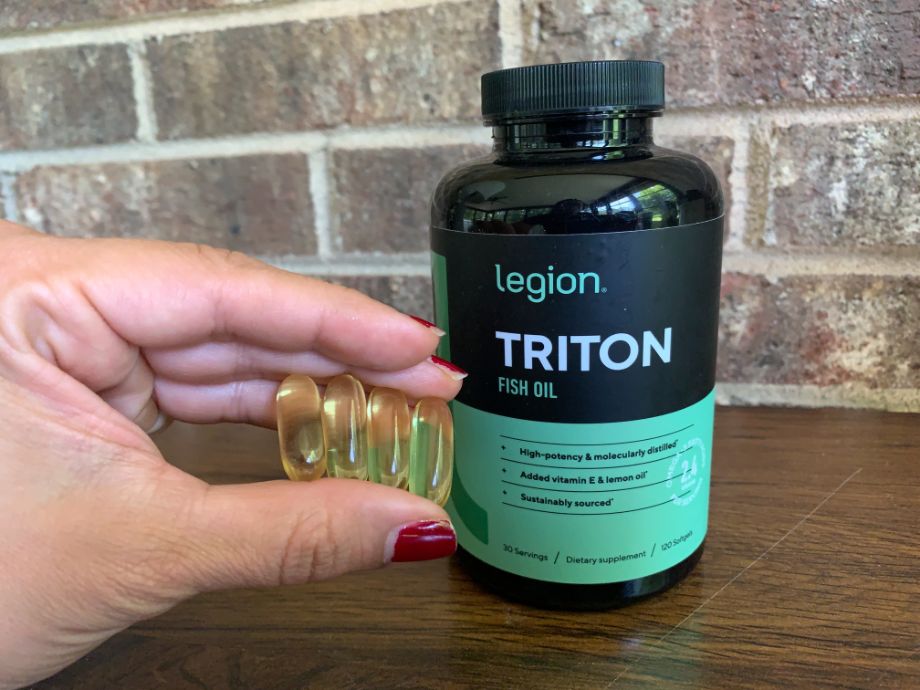
Omega-3 fatty acids have been shown to counteract insulin resistance and increase insulin sensitivity, as noted in a 2018 review36. It does this by reducing inflammation on the cellular level, modulating mitochondria’s energy and reducing stress on the endoplasmic reticulum of cellular level. It also helps improve lipid metabolism37.
Bob offers some other great supplements for those with PCOS:
- Zinc, magnesium, and chromium can help regulate glucose and energy metabolism. A 2020 review38 notes that a deficiency in these minerals can lead to insulin resistance or diabetes.
- Berberine and silymarin (milk thistle) has been shown to help regulate blood sugar levels39 and reduce insulin resistance40.
- Whey protein was shown to improve insulin sensitivity in mice in a 2004 study. Bob adds, “If you’re wanting a protein powder to reduce insulin resistance, make sure to pick whey.”
- Vitamin D3, according to a 2023 review41, has an inverse correlation with insulin resistance, meaning that people who are deficient in D3 are more likely to develop insulin resistance. This means that supplementing with D3 could help increase insulin sensitivity.
RELATED: Best ZMA Supplements
Legion Triton Fish Oil Specs
| Price | $1.67 per serving/$49.99 per container |
| Dosage | 4 softgels a day |
| Form | Softgel |
| Percent Daily Value | N/A |
| Use | Taken daily |
Other Weight Loss Supplements to Consider
Some additional nutrients may help certain individuals with weight loss. Those are iodine and vitamin D, according to registered dietitian Destini Moody.
Iodine
Iodine42 is a mineral needed by the body for several purposes, but primarily the synthesis of thyroid hormones T3 (triiodothyronine) and T4 (thyroxine). According to Destini, low iodine results in low thyroid hormone levels and impaired thyroid function, which often leads to struggles with slow metabolism and weight management.
In the United States, most people get their iodine from iodized salt, but it’s available as a supplement in isolation, too. Iodine toxicity is rare43, but it can happen, so be sure not to surpass the adult tolerable upper intake level of 1,100 micrograms (or 1.1. milligrams). The tolerable upper intake level represents the max amount of a substance that can be consumed before adverse effects occur.
Vitamin D
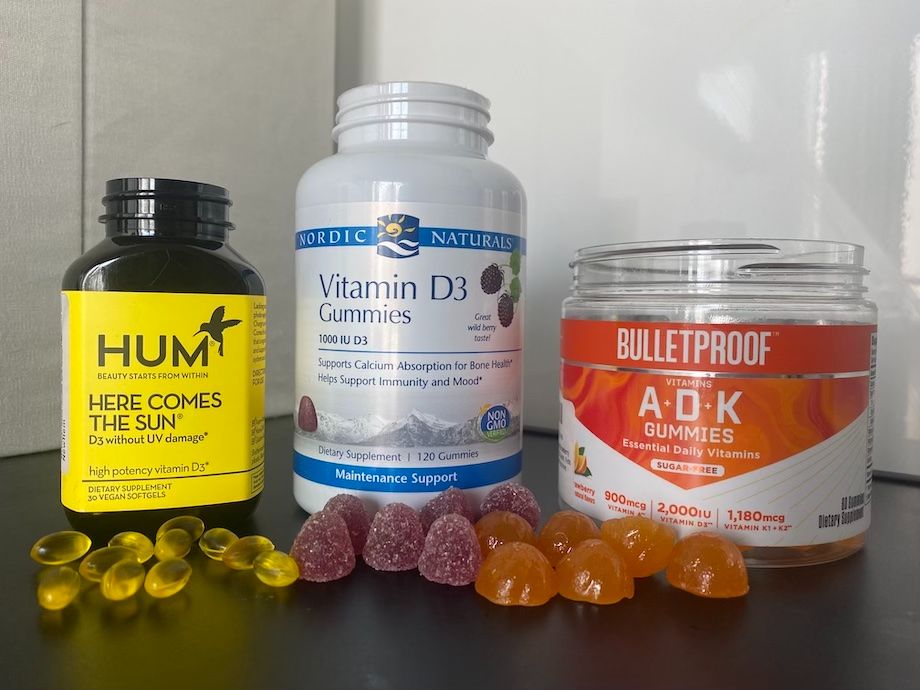
Like vitamin B12, magnesium, and iron, vitamin D has profound effects on your health and mood. Being deficient in vitamin D may result in fatigue, muscle weakness or muscle aches, and mood changes, including depressive moods, according to the Cleveland Clinic44.
Vitamin D also plays a role in sleep regulation45, and as we discussed with magnesium, poor sleep is associated with increased calorie intake, snacking, and less healthy food choices.
Because vitamin D is a fat-soluble vitamin, it can accumulate in your body, and the risk of toxicity46 is higher than with water-soluble vitamins your body can excrete through urine. The recommended daily intake47 for vitamin D for adults is 600 international units (IU) or 15 micrograms (mcg).
Weight Loss Supplements To Avoid (And Why)
As a general rule, we don’t recommend fat burners, appetite suppressants, or off-label use of prescription medications for weight loss. In collaboration with registered dietitian Destini Moody, along with two medical professionals in my family (my mom, Kerri Kittrell, nurse practitioner, and my stepfather, Dr. Jimmy Kittrell, internal medicine physician), we put together a complete guide to weight loss pills that don’t work. We summarize that guide here.

In short, supplements and drugs we do not recommend include:
- Off-label use of any prescription weight loss pills, including glucagon-like peptide 1 (GLP-1) receptor agonists such as generic semaglutide, Ozempic, Wegovy, and Rybelsus; orlistat (Xenical), phentermine and topiramate (Qysmius); human chorionic gonadotropin (HCG) hormone; ipecac; and naltrexone and bupropion (Contrave).
- Substances banned for use in dietary supplements and medications, including clenbuterol, ma huang/ephedra, phenylpropanolamine, and dinitrophenol.
- Over-the-counter medications that can be abused for weight loss and cause problems such as altered electrolyte levels, including laxatives and diuretics.
- Fat burners and appetite suppressants that aren’t proven to substantially affect weight and have potential adverse health effects, including capsaicin (active ingredient in Capsimax powder, usually derived from cayenne pepper); a-LACYS RESET (active ingredient in PhenQ, a combo of cysteine and alpha-lipoic acid); Garcinia cambogia/hydroxycitric acid (former active ingredient in Hydroxycut); yohimbe extract, which is banned in several countries; carb blockers; and substances that alter fat metabolism
- Supplements that aren’t proven to substantially affect weight and have minor side effects (and probably are a waste of money for weight loss purposes), including the amino acids L-theanine and L-carnitine; conjugated linoleic acid (CLA), a fatty acid; turmeric; piperine; beta-hydroxybutyrate (BHB) and other ketones; antioxidant supplements; chromium picolinate; and chlorogenic acid
Busting Myths About Weight Loss Supplements
The weight loss industry is large, and a lot of information is available online, with often contrasting opinions. I’ve talked with registered dietitian Bob Iafelace about certain myths prevalent in the fitness industry. Here, we’ll cut through the noise a bit, dispelling a few myths on certain supplements and giving alternatives where need be.
Can Green Tea Help Boost My Metabolism or Burn Fat?
“A strong green tea extract can increase energy expenditure—increasing calorie-burning while at rest,” says Bob Iafelace, RD. “The caffeine is likely the major contributor to it,” he continues. However, this doesn’t aid in weight loss or fat-burning much at all.
Bob notes, “Most studies show insignificant weight loss.” Bob reminds us that the best products for weight loss are dietary supplements containing essential nutrients that help fill gaps in a proper diet and exercise routine.
You can, of course, drink green tea if you like the taste, but don’t expect this to be a metabolism booster or fat burner that’ll melt the pounds off.
Is There a Best Menopause Supplement for Weight Loss?
As women go through menopause, they may experience weight gain, although the cause of it is usually compounded across different factors, such as aging, lifestyle choices, and hormonal changes. Because of this, there’s not really a supplement that addresses weight loss and menopause at the same time.
Bob seconds this by saying, “I don’t know of any supplements that alleviate menopausal symptoms and promote weight loss in a significant way.” His suggestion? If you’re wanting to lose weight, try weight loss supplements that’d work for anyone. “You can’t go wrong with omega-3s,” Bob says, adding, “They’re beneficial for just about any condition, as they do make your metabolism more efficient.”
Weight Loss Supplements vs Weight Loss Medications
An important distinction: Weight loss supplements are just another form of vitamins, minerals, and other compounds found in food. Weight loss medications, on the other hand, are specially formulated chemicals that interfere with certain bodily actions (such as suppressing hunger hormones).
“That’s why third-party testing is such a big thing (especially at GGR).”
Destini Moody, registered dietitian
Destini Moody, RD, says another difference is that supplements are not regulated by the Food and Drug Administration, whereas medications are. “That’s why third-party testing is such a big thing (especially at GGR),” Moody says.
How We Chose the Best Weight Loss Supplements
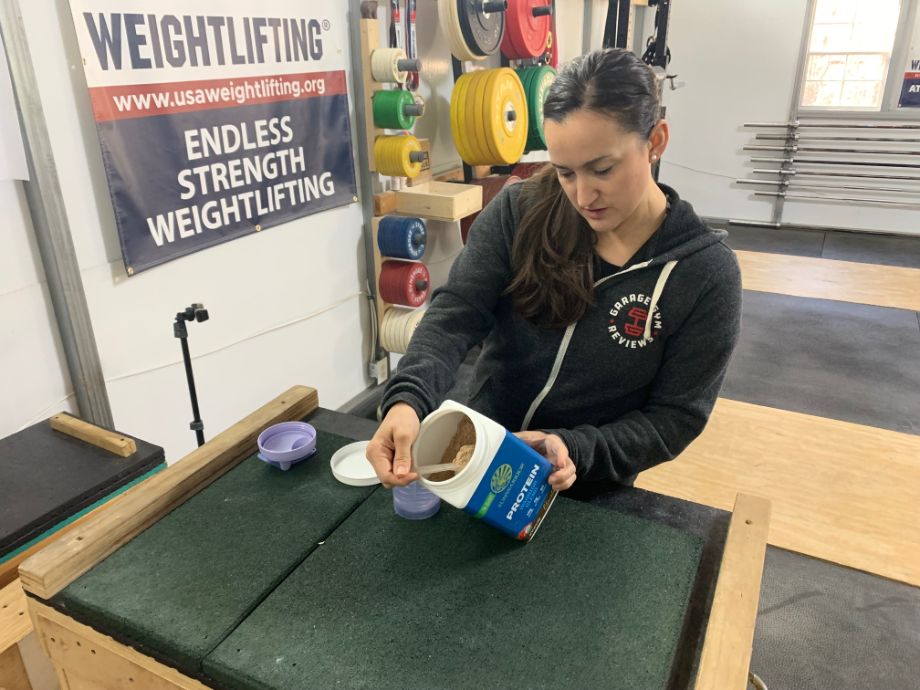
With input from registered dietitians, we chose our recommended supplements by focusing on nutrients with a proven history of efficacy and safety. Our recommendations are nutrients you need in your day-to-day life—not just for weight loss, but for your health. We also personally tried the supplements we recommend in this article.
Our focus is helping our readers lose weight effectively, safely, and for the long term. No, it’s not as sexy as “shedding pounds” and “melting fat.” But it keeps you safe and sets you up for a lifetime of success rather than yo-yo weight loss and regain.
This is not to say that all weight loss products are inherently bad. The problem is that there’s a long and consistent history of mislabeling in the weight loss industry—what you see is not always what you get.
When to Talk to a Doctor About Weight Loss Supplements
Certain supplements have a healthy place in a well-rounded weight loss program. We encourage you to talk to your doctor and/or a registered dietitian before trying supplements for weight loss if:
- You’ve been in a caloric deficit for some time but aren’t losing weight
- You take prescription medications
- You have any health/medical condition
- You’re experiencing symptoms such as consistent gastrointestinal distress, extreme fatigue, mood swings or low moods, difficulty sleeping, weakness, headaches, or persistent brain fog
Dosing and Interactions
All of the supplements in this guide—both the ones we recommend and the ones we don’t—have potential for interactions with drugs, medications, foods, and other supplements. Those on prescription medications should consult with their doctor before starting supplements for weight loss, and it can’t hurt to consult regardless of medication status.
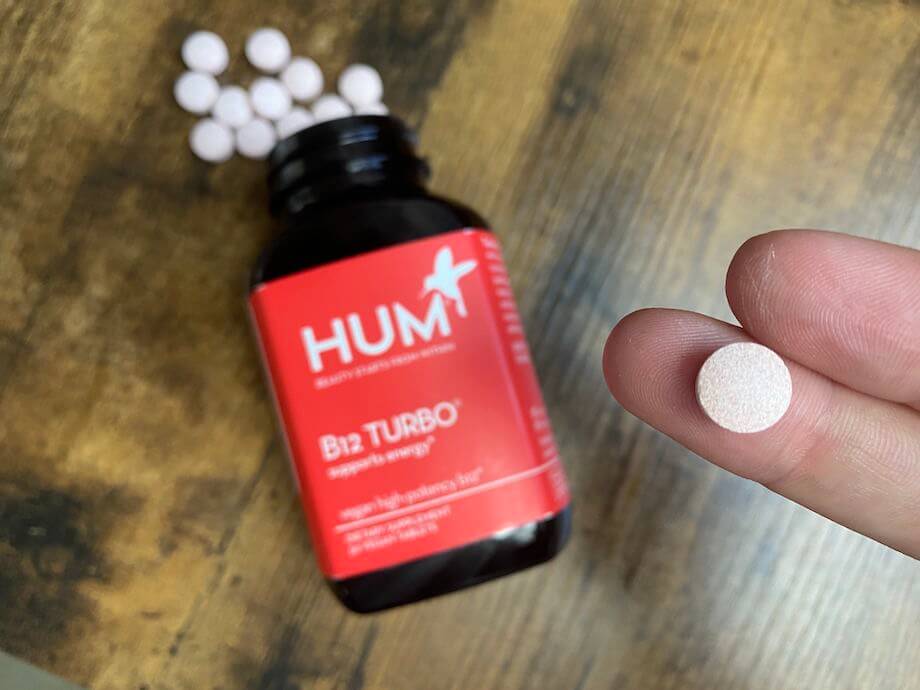
Potential Side Effects of Weight Loss Supplements
While in this roundup we recommend safer options and supplements for weight loss—avoiding fat burners and metabolism boosters that may have dangerous side effects—there are some potential risks and side effects to any supplement still. Here are some common side effects or risks with some of the supplements we’ve recommended. As with any supplement, consult a healthcare professional before adding these to your daily routine.
Vitamins and Minerals
In the same way that you can have a deficiency in vitamins or minerals, you can have an overabundance of these micronutrients, leading to toxicity. You’re less likely to develop toxicity from water-soluble vitamins (like B vitamins and vitamin C) because they’re typically flushed out by your body frequently, but toxicity can occur more often with certain minerals and fat-soluble vitamins (vitamins A, D, E, and K).
Having toxicity in certain vitamins and minerals can have serious side effects:
- Vitamin A toxicity can cause damage to the liver, bones, nervous system, and skin, according to studies48.
- Magnesium toxicity49 can lead to hypotension, nausea, and vomiting, which can then lead to muscle weakness and in rare cases cardiac arrest if left untreated.
- Vitamin K and CoQ10 can reduce the effectiveness of blood thinners.
- Vitamin D toxicity50 leads to a buildup of calcium in the body, which can lead to nausea, vomiting, and general fatigue.
Before using a multivitamin, consult a licensed professional, especially if you’re already taking medications, as certain vitamins and minerals can affect their effectiveness.
Protein Powder
If you’re using protein powder to meet your daily protein intake, then the side effects and risks involved are relatively low. Most stem from allergies or intolerances. People who have a dairy allergy, for example, may need to avoid whey and casein protein powders, as the milk-derived ingredients could cause some gastrointestinal issues. Soy and pea protein51 have also been reported to cause allergic reactions in some people.
While protein powder can help you get a bit more protein in your diet, it shouldn’t be your only source of protein. Eating a balanced diet with animal and/or plant proteins will ensure you’re getting vital micronutrients, which are usually lacking in protein powders.
Caffeine
People’s tolerance levels of caffeine will vary from person to person, so while caffeine and pre-workout can help provide energy for a training session, I recommend starting with a lower dose and gauging your tolerance first, before taking a full dose of the strongest pre-workout you can find.
Caffeine can cause jitters, an elevated heart rate, or make sleep difficult. If you deal with health issues like sleep disorders or heart conditions already, you should be cautious of your caffeine intake. Pregnant women should also exercise caution with caffeine. As always, talk to your physician before starting a new supplement routine.
Third-Party Testing
Dietary supplements are regulated by the Dietary Supplement Health and Education Act1 (DSHEA) of 1994. The DSHEA stipulates that manufacturers are responsible for clearly and accurately labeling their products and ensuring they are free from banned ingredients.
But the FDA can’t actually enforce anything until after supplements are made available to consumers and reports of adverse effects are made. Practically, what this means is that there’s no way of knowing what’s actually in a supplement unless it’s independently tested by a third-party agency—or until a consumer suffers from health complications and the FDA investigates.
This is why third-party testing is so important, especially for weight loss supplements, which have a history of mislabeling93.
Look for these key terms as you shop for supplements to determine whether a product is independently tested:
- Certificate of composition
- Certificate of analysis
- NSF Certified
- NSF Certified for Sport
- Banned Substances Control Group Certified Quality
- Banned Substances Control Group Certified Drug-Free
- U.S. Pharmacopeia Verified Mark (mainly for vitamins)
For what it’s worth, registered dietitian Destini Moody says that the NSF (the largest independent supplement testing agency) “does not evaluate anything classified as a fat burner, no matter how pure, as per their policy.”
How to Choose the Best Weight Loss Supplements
Hopefully, you now have an understanding of which supplements work for weight loss, which ones still need more research, and which ones are dangerous. If you’re ready to begin shopping, here are some additional tips.
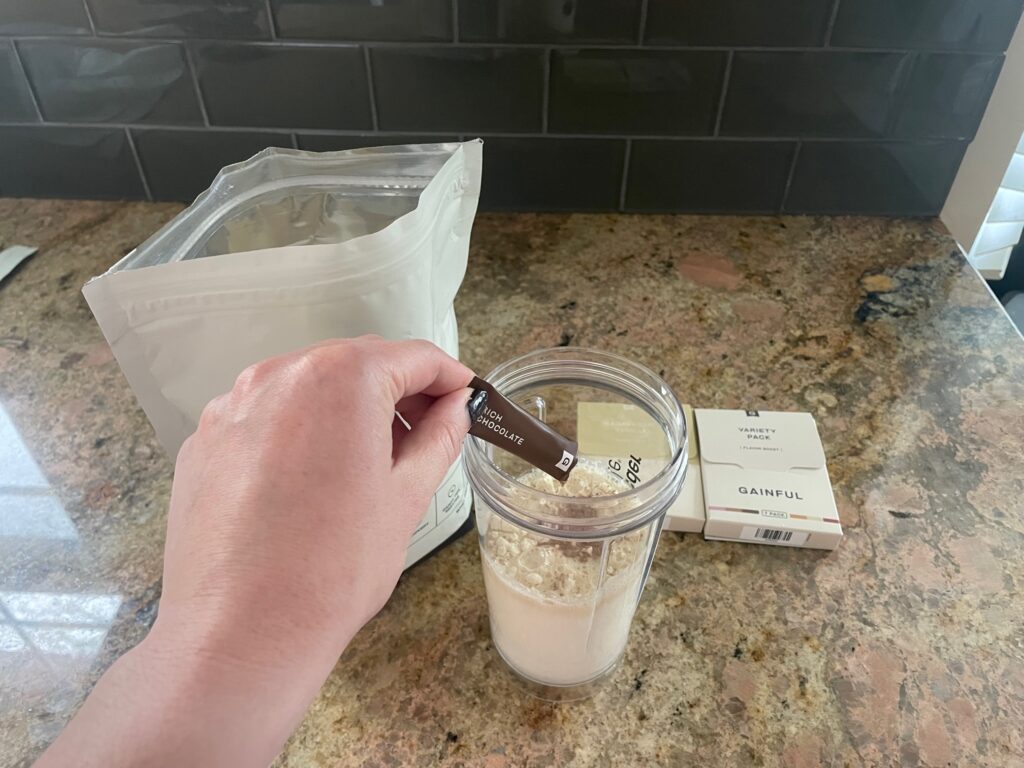
Testing, Labeling, and Nutrition Info
The most important thing is to look for supplements that are third-party tested and have a transparent label that is easy to understand. The nutrition information and ingredients list should be clear and comprehensive. Better yet, the company will provide additional resources so you can learn more about the ingredients, where they come from, and what they actually do in the body.
Questionable Marketing
Watch out for hyperbolic phrases and promises that seem unrealistic. Products that claim to “melt fat” or result in “30 pounds lost in 30 days” are likely predatory. A good rule of thumb is to remember that if it seems too good to be true, it probably is.
In general, if something claims to make your body burn more calories on its own without exercise or any lifestyle changes, avoidance is the best policy. At a minimum, consult with a registered dietitian before taking it.
Meeting Your Needs
Taking all the pills and powders in the world won’t help if they aren’t what you need. For instance, taking vitamin B12 or magnesium or vitamin D offers no benefit to those who are not deficient in those nutrients. Likewise, consuming more fiber or protein confers no additional benefits if you already get enough.
It’s important to evaluate your eating habits and try to take stock of the nutrients you consume on a daily basis. You can ask your healthcare provider for bloodwork to determine deficiencies. In the long run, it’ll save you money since you won’t be spending it on supplements you don’t need.
Weight Loss Supplements FAQs
What is the best supplement to lose weight fast?
Supplements aren’t magic: They can’t lose weight for you. Regardless of what supplements you take, you’ll still have to exercise and eat healthy to lose weight. That said, some supplements can fill nutritional gaps when you’re in a calorie deficit as well as help with appetite control. Our recommendations for the best weight loss supplements are:
-Best Daily Weight Loss Supplement: Multivitamin
-Best-Tasting Weight Loss Supplement: Whey Protein Powder
-Best Vegan Supplement for Weight Loss: Vegan Protein Powder
-Best Simple Weight Loss Supplement: Fiber
-Best Weight Loss Supplement for Gut Health: Probiotic
-Best Weight Loss Supplement for Appetite Control: Casein Protein Powder
-Best Nighttime Weight Loss Supplement: Magnesium
-Best Weight Loss Supplement for Plant-Based Dieters: Vitamin B12
-Best Weight Loss Supplement for Women: Iron
-Best Weight Loss Supplement to Use When Working Out: Caffeine
Do weight loss supplements actually work?
When it comes to weight loss supplements or diet pills, the better question is: Do they work safely and for the long haul?
Diet pills can certainly induce weight loss, and do so quickly, but they are not a smart or safe long-term strategy. For most ingredients in weight loss pills, there isn’t enough long-term evidence to definitively say whether they are safe for consumption. Additionally, it’s common to regain weight when you stop taking a diet pill.
The best way to lose weight is to establish a safe calorie deficit through exercise and diet; also supplement your diet and exercise with safe and research-backed dietary supplements like protein powder, multivitamins, and others.
What supplements burn belly fat?
No supplements burn belly fat on their own. Losing body fat, including on the abdomen, requires a caloric deficit. You can achieve a caloric deficit through diet and exercise.
These statements have not been evaluated by the Food and Drug Administration. This product is not intended to diagnose, treat, cure, or prevent any diseases.
References
- U.S. Office of Dietary Supplements, National Institutes of Health. Dietary Supplement Health and Education Act of 1994, Public Law 103-417, 103rd Congress.
- Yen M, Ewald MB. Toxicity of weight loss agents. J Med Toxicol. 2012;8(2):145-152. doi:10.1007/s13181-012-0213-7
- Nunes EA, Colenso-Semple L, McKellar SR, et al. Systematic review and meta-analysis of protein intake to support muscle mass and function in healthy adults. J Cachexia Sarcopenia Muscle. 2022;13(2):795-810. doi:10.1002/jcsm.12922
- Pasiakos SM, McLellan TM, Lieberman HR. The effects of protein supplements on muscle mass, strength, and aerobic and anaerobic power in healthy adults: a systematic review. Sports Med. 2015;45(1):111-131. doi:10.1007/s40279-014-0242-2
- Frestedt JL, Zenk JL, Kuskowski MA, Ward LS, Bastian ED. A whey-protein supplement increases fat loss and spares lean muscle in obese subjects: a randomized human clinical study. Nutr Metab (Lond). 2008;5:8. Published 2008 Mar 27. doi:10.1186/1743-7075-5-8
- Kerksick CM, Jagim A, Hagele A, Jäger R. Plant Proteins and Exercise: What Role Can Plant Proteins Have in Promoting Adaptations to Exercise?. Nutrients. 2021;13(6):1962. Published 2021 Jun 7. doi:10.3390/nu13061962
- Burton-Freeman B, Liyanage D, Rahman S, Edirisinghe I. Ratios of soluble and insoluble dietary fibers on satiety and energy intake in overweight pre- and postmenopausal women. Nutr Healthy Aging. 2017;4(2):157-168. Published 2017 Mar 31. doi:10.3233/NHA-160018
- Holscher HD. Dietary fiber and prebiotics and the gastrointestinal microbiota. Gut Microbes. 2017;8(2):172-184. doi:10.1080/19490976.2017.1290756
- Aoun A, Darwish F, Hamod N. The Influence of the Gut Microbiome on Obesity in Adults and the Role of Probiotics, Prebiotics, and Synbiotics for Weight Loss. Prev Nutr Food Sci. 2020;25(2):113-123. doi:10.3746/pnf.2020.25.2.113
- Sood N, Baker WL, Coleman CI. Effect of glucomannan on plasma lipid and glucose concentrations, body weight, and blood pressure: systematic review and meta-analysis. Am J Clin Nutr. 2008;88(4):1167-1175. doi:10.1093/ajcn/88.4.1167
- Pittler MH, Ernst E. Guar gum for body weight reduction: meta-analysis of randomized trials. Am J Med. 2001;110(9):724-730. doi:10.1016/s0002-9343(01)00702-1
- Darooghegi Mofrad M, Mozaffari H, Mousavi SM, Sheikhi A, Milajerdi A. The effects of psyllium supplementation on body weight, body mass index and waist circumference in adults: A systematic review and dose-response meta-analysis of randomized controlled trials. Crit Rev Food Sci Nutr. 2020;60(5):859-872. doi:10.1080/10408398.2018.1553140
- Uebelhack R, Busch R, Alt F, Beah ZM, Chong PW. Effects of cactus fiber on the excretion of dietary fat in healthy subjects: a double blind, randomized, placebo-controlled, crossover clinical investigation [published correction appears in Curr Ther Res Clin Exp. 2014 Sep;76:63]. Curr Ther Res Clin Exp. 2014;76:39-44. Published 2014 Jun 21. doi:10.1016/j.curtheres.2014.02.001
- Kadooka Y, Sato M, Imaizumi K, et al. Regulation of abdominal adiposity by probiotics (Lactobacillus gasseri SBT2055) in adults with obese tendencies in a randomized controlled trial. Eur J Clin Nutr. 2010;64(6):636-643. doi:10.1038/ejcn.2010.19
- Safavi M, Farajian S, Kelishadi R, Mirlohi M, Hashemipour M. The effects of synbiotic supplementation on some cardio-metabolic risk factors in overweight and obese children: a randomized triple-masked controlled trial. Int J Food Sci Nutr. 2013;64(6):687-693. doi:10.3109/09637486.2013.775224
- Álvarez-Arraño V, Martín-Peláez S. Effects of Probiotics and Synbiotics on Weight Loss in Subjects with Overweight or Obesity: A Systematic Review. Nutrients. 2021;13(10):3627. Published 2021 Oct 17. doi:10.3390/nu13103627
- Hills RD Jr, Pontefract BA, Mishcon HR, Black CA, Sutton SC, Theberge CR. Gut Microbiome: Profound Implications for Diet and Disease. Nutrients. 2019;11(7):1613. Published 2019 Jul 16. doi:10.3390/nu11071613
- Afzaal M, Saeed F, Shah YA, et al. Human gut microbiota in health and disease: Unveiling the relationship. Front Microbiol. 2022;13:999001. Published 2022 Sep 26. doi:10.3389/fmicb.2022.999001
- Moon J, Koh G. Clinical Evidence and Mechanisms of High-Protein Diet-Induced Weight Loss. J Obes Metab Syndr. 2020;29(3):166-173. doi:10.7570/jomes20028
- Leidy HJ, Clifton PM, Astrup A, et al. The role of protein in weight loss and maintenance. Am J Clin Nutr. 2015;101(6):1320S-1329S. doi:10.3945/ajcn.114.084038
- Hansen TT, Astrup A, Sjödin A. Are Dietary Proteins the Key to Successful Body Weight Management? A Systematic Review and Meta-Analysis of Studies Assessing Body Weight Outcomes after Interventions with Increased Dietary Protein. Nutrients. 2021;13(9):3193. Published 2021 Sep 14. doi:10.3390/nu13093193
- Allen MJ, Sharma S. Magnesium. [Updated 2023 Feb 20]. In: StatPearls [Internet]. Treasure Island (FL): StatPearls Publishing; 2023 Jan-. Available from: https://www.ncbi.nlm.nih.gov/books/NBK519036/
- de Baaij JH, Hoenderop JG, Bindels RJ. Magnesium in man: implications for health and disease. Physiol Rev. 2015;95(1):1-46. doi:10.1152/physrev.00012.2014
- Arab A, Rafie N, Amani R, Shirani F. The Role of Magnesium in Sleep Health: a Systematic Review of Available Literature. Biol Trace Elem Res. 2023;201(1):121-128. doi:10.1007/s12011-022-03162-1
- Mah J, Pitre T. Oral magnesium supplementation for insomnia in older adults: a Systematic Review & Meta-Analysis. BMC Complement Med Ther. 2021;21(1):125. Published 2021 Apr 17. doi:10.1186/s12906-021-03297-z
- Pattnaik H, Mir M, Boike S, Kashyap R, Khan SA, Surani S. Nutritional Elements in Sleep. Cureus. 2022;14(12):e32803. Published 2022 Dec 21. doi:10.7759/cureus.32803
- Cleveland Clinic. Vitamin B12 Deficiency.
- U.S. Office of Dietary Supplements, National Institutes of Health. Vitamin B12: Fact Sheet for Health Professionals.
- Allen LH. Vitamin B-12. Adv Nutr. 2012;3(1):54-55. doi:10.3945/an.111.001370
- Mayo Clinic. Vitamin B-12. Mayo Clinic Staff.
- Mayo Clinic. Iron Deficiency Anemia. Mayo Clinic Staff.
- Beard J, Tobin B. Iron status and exercise. Am J Clin Nutr. 2000;72(2 Suppl):594S-7S. doi:10.1093/ajcn/72.2.594S
- Murray A, Traylor J. Caffeine Toxicity. [Updated 2023 Jun 26]. In: StatPearls [Internet]. Treasure Island (FL): StatPearls Publishing; 2023 Jan-. Available from: https://www.ncbi.nlm.nih.gov/books/NBK532910/
- U.S. Food and Drug Administration. Spilling the Beans: How Much Caffeine is Too Much?
- Rasquin LI, Anastasopoulou C, Mayrin JV. Polycystic Ovarian Disease. [Updated 2022 Nov 15]. In: StatPearls [Internet]. Treasure Island (FL): StatPearls Publishing; 2024 Jan-. Available from: https://www.ncbi.nlm.nih.gov/books/NBK459251/
- Lepretti, M., Martucciello, S., Burgos Aceves, M. A., Putti, R., & Lionetti, L. (2018). Omega-3 Fatty Acids and Insulin Resistance: Focus on the Regulation of Mitochondria and Endoplasmic Reticulum Stress. Nutrients, 10(3), 350. https://doi.org/10.3390/nu10030350
- Liu, W., Gao, M., Yang, S., Sun, C., Bi, Y., Li, Y., Wang, J., & Yuan, X. (2023). Effects of omega-3 supplementation on glucose and lipid metabolism in patients with gestational diabetes: A meta-analysis of randomized controlled trials. Journal of diabetes and its complications, 37(4), 108451. https://doi.org/10.1016/j.jdiacomp.2023.108451
- Dubey, P., Thakur, V., & Chattopadhyay, M. (2020). Role of Minerals and Trace Elements in Diabetes and Insulin Resistance. Nutrients, 12(6), 1864. https://doi.org/10.3390/nu12061864
- Fogacci, F., Grassi, D., Rizzo, M., & Cicero, A. F. G. (2019). Metabolic effect of berberine-silymarin association: A meta-analysis of randomized, double-blind, placebo-controlled clinical trials. Phytotherapy research : PTR, 33(4), 862–870. https://doi.org/10.1002/ptr.6282
- Ye, Y., Liu, X., Wu, N., Han, Y., Wang, J., Yu, Y., & Chen, Q. (2021). Efficacy and Safety of Berberine Alone for Several Metabolic Disorders: A Systematic Review and Meta-Analysis of Randomized Clinical Trials. Frontiers in pharmacology, 12, 653887. https://doi.org/10.3389/fphar.2021.653887
- Argano, C., Mirarchi, L., Amodeo, S., Orlando, V., Torres, A., & Corrao, S. (2023). The Role of Vitamin D and Its Molecular Bases in Insulin Resistance, Diabetes, Metabolic Syndrome, and Cardiovascular Disease: State of the Art. International journal of molecular sciences, 24(20), 15485. https://doi.org/10.3390/ijms242015485
- U.S. Office of Dietary Supplements, National Institutes of Health. Iodine: Health Professional Fact Sheet.
- Southern AP, Jwayyed S. Iodine Toxicity. [Updated 2023 Aug 8]. In: StatPearls [Internet]. Treasure Island (FL): StatPearls Publishing; 2023 Jan-. Available from: https://www.ncbi.nlm.nih.gov/books/NBK560770/
- Cleveland Clinic. Vitamin D Deficiency.
- Abboud M. Vitamin D Supplementation and Sleep: A Systematic Review and Meta-Analysis of Intervention Studies. Nutrients. 2022;14(5):1076. Published 2022 Mar 3. doi:10.3390/nu14051076
- Asif A, Farooq N. Vitamin D Toxicity. [Updated 2023 May 24]. In: StatPearls [Internet]. Treasure Island (FL): StatPearls Publishing; 2023 Jan-. Available from: https://www.ncbi.nlm.nih.gov/books/NBK557876/
- U.S. Office of Dietary Supplements, National Institutes of Health. Vitamin D: Health Professional Fact Sheet.
- Olson, J. M., & Goyal, A. (2020). Vitamin A Toxicity. PubMed; StatPearls Publishing. https://www.ncbi.nlm.nih.gov/books/NBK532916/
- Ajib, F. A., & Childress, J. M. (2022). Magnesium Toxicity. In StatPearls. StatPearls Publishing.
- Asif, A., & Farooq, N. (2023). Vitamin D Toxicity. In StatPearls. StatPearls Publishing.
- Hertzler SR, Lieblein-Boff JC, Weiler M, et al. Plant proteins: Assessing their nutritional quality and effects on health and physical function. Nutrients. 2020;12(12):3704. doi: 10.3390/nu12123704
Further reading

Curious about the relationship between exercise and stress? Here’s what the current research from our fitness experts has to say. Read more

Weight loss is hard: There’s no getting around that. When diet and exercise feel fruitless, people turn to popular weight loss supplements, including prescription medications. Unfortunately, many weight loss products are questionable at best and downright dangerous at worst. We encourage consumers to be skeptical of any product that promises quick fat loss or an increased metabolic rate. As a certified personal trainer and certified sports nutrition coach, clients often come to me wanting to lose weight and inquiring about fat burners and appetite suppressants. » Read more about: Best Weight Loss Supplements (2025): 10 Expert-Tested Products That Can Actually Help » Read more

The best treadmills under $2,000 are packed with high-end features but don’t break your budget. Read more

The recumbent bike exercise is often thought of as a cardio workout cop-out. How can you sit down and pedal horizontally and reach your fitness goals? Read more

